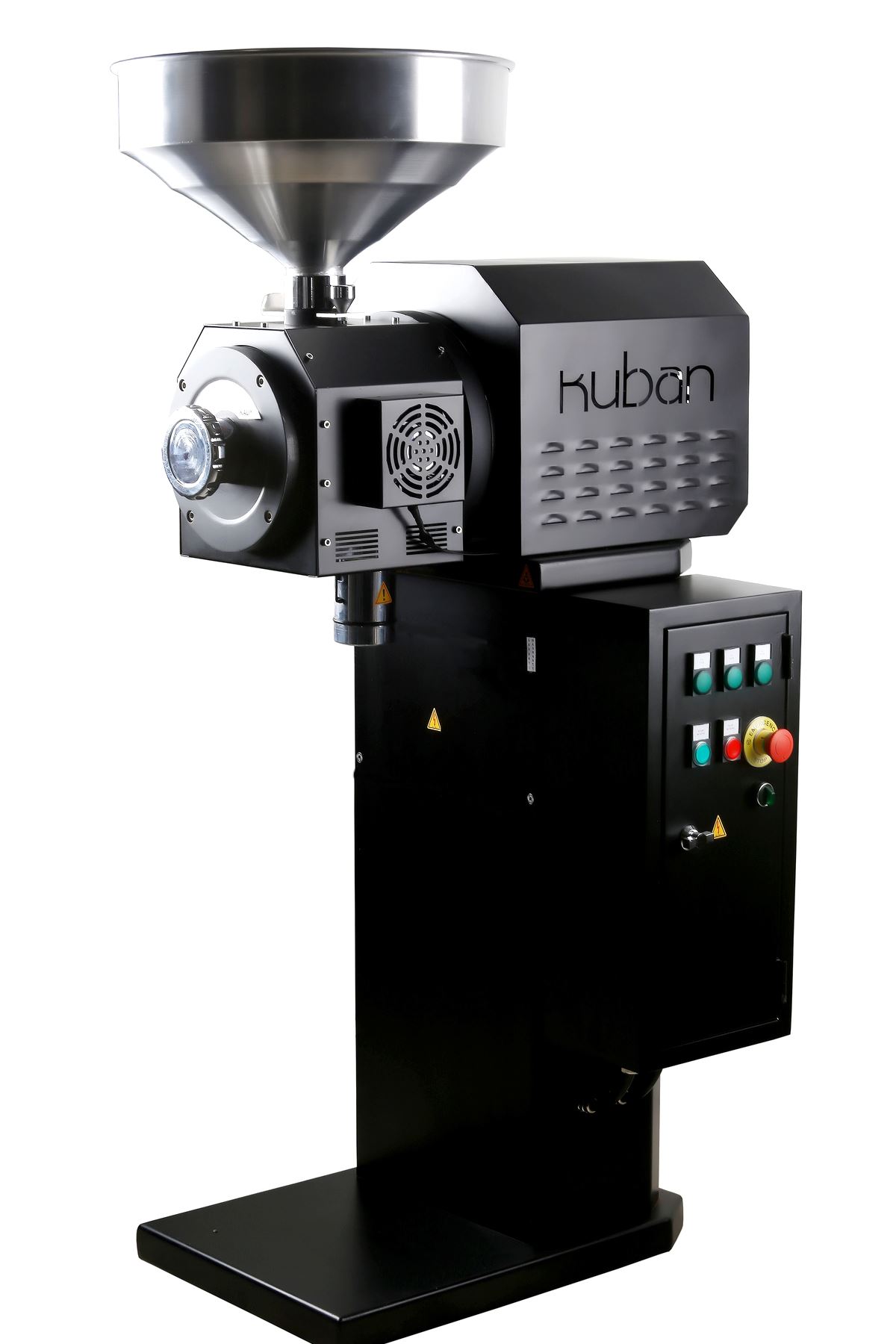Key Benefits of Using an Industrial Coffee Grinder for Your Operation
Key Benefits of Using an Industrial Coffee Grinder for Your Operation
Blog Article
Industrial Coffee Grinder Overview: Boost Effectiveness and Quality
In the affordable landscape of coffee production, selecting the ideal commercial coffee mill plays an essential role in improving both effectiveness and product high quality. Comprehending the nuances of different grinder types and key attributes-- such as adjustable grind settings and robust construction-- can considerably influence the last taste account of the coffee.
Comprehending Grinder Types
When selecting a commercial coffee mill, recognizing the different types available is essential for optimizing both taste removal and operational efficiency. The two key kinds of grinders are blade grinders and burr mills. Blade grinders utilize sharp blades that cut coffee beans into inconsistent dimensions, causing unequal extraction and possibly unfavorable flavors. While blade mills are commonly a lot more economical and suitable for small-scale procedures, they are normally not recommended for commercial use.

Eventually, selecting the appropriate kind of grinder is indispensable to preserving quality and efficiency in coffee manufacturing, making it imperative for organizations to buy high-grade burr grinders for ideal outcomes.
Secret Attributes to Think About
Selecting a commercial coffee mill requires mindful consideration of a number of crucial attributes that can considerably affect both efficiency and the total coffee experience. Among the primary aspects to examine is the grinding device. Burr mills are typically liked over blade mills, as they give a regular grind size, which is important for ideal removal and taste.
An additional essential feature is the grinder's capacity. Depending on the volume of coffee you need to process, choose a model that can handle your requirements without sacrificing speed or quality. Additionally, consider the grind settings offered. A functional mill with numerous setups permits you to customize the work dimension to different brewing methods, enhancing the coffee's flavor account.
Evaluate the grinder's sound level, specifically in a hectic coffee shop or production setting, where excessive sound can be disruptive. Investing in a mill that balances these attributes can greatly boost both operational effectiveness and the quality of the coffee served.
Optimizing Grinding Refine
To achieve the finest outcomes in coffee preparation, optimizing the grinding procedure is vital. The grind dimension considerably affects removal, flavor, and general top quality of the made coffee. Different brewing approaches require particular work dimensions; for instance, coffee requires a great grind, while French press requires a rugged appearance. Understanding the relationship between grind dimension and developing approach is the initial step in optimization.


In addition, checking the grinding rate can maximize the procedure. Slower grinding often produces less warmth, maintaining look at this web-site fragile tastes and fragrances. Alternatively, much faster grinding might create too much warmth, adversely impacting the coffee's quality.
Maintenance and Treatment Tips
Correct upkeep and care of industrial coffee grinders are essential for ensuring optimal performance and longevity. Normal cleansing is the foundation of maintenance; deposit accumulation can impact flavor and grinding efficiency. It is advisable to cleanse the mill after each use, cleaning down the outside and getting rid of any coffee premises from the burrs.
Furthermore, examine the grinding burrs for wear and tear. Plain burrs can jeopardize grind uniformity, so they must be replaced as essential. Industrial Coffee Grinder. Regularly calibrating the mill is likewise essential, as this maintains the wanted grind dimension for different developing techniques
Lubrication of moving components ought to be executed according to the maker's specifications, as this lowers friction and lengthens the life of the devices. It is vital to make use of food-grade lubes to ensure safety and security and compliance with wellness regulations.
Last but not least, keep the mill in a stable and dry setting to avoid corrosion and rust. By sticking to these maintenance and care pointers, operators can improve the efficiency of their industrial coffee mills while guaranteeing high-grade output check this site out and prolonged functional life.
Roi Evaluation
Reviewing the return on investment (ROI) for industrial coffee mills is critical for companies looking for to optimize their coffee production abilities. A detailed ROI evaluation helps identify the monetary practicality of spending in high-grade mills, permitting organizations to weigh the initial costs against possible gains.
Assess the acquisition cost of the grinder, consisting of installation and any kind of needed modifications to existing framework. High-performance mills frequently lead to reduced grinding time and raised throughput, which can considerably enhance efficiency.
Additionally, take into consideration the influence on item high quality. Industrial Coffee Grinder. Superior mills produce an even more constant work size, which can boost flavor accounts and customer contentment, eventually driving sales. By raising the high quality of the end product, businesses can warrant higher prices, causing boosted earnings
Conclusion
In summary, a commercial coffee mill plays a crucial role in boosting both efficiency and item top quality within coffee manufacturing. By picking top notch burr grinders geared up with crucial features such as flexible work setups and resilient building and construction, businesses can guarantee optimum taste extraction. Additionally, normal upkeep is essential for sustaining mill efficiency and optimizing customer satisfaction. Eventually, a knockout post the critical investment in a dependable grinder contributes considerably to enhanced profits and competition in the coffee market.
In the competitive landscape of coffee manufacturing, picking the ideal commercial coffee grinder plays a critical function in enhancing both efficiency and item top quality. The 2 main types of grinders are blade mills and burr mills. Within the burr grinder category, there are flat burr mills and conical burr grinders, each with its benefits. Burr mills are normally chosen over blade grinders, as they give a constant grind dimension, which is critical for ideal extraction and flavor.
In recap, an industrial coffee mill plays an essential duty in boosting both efficiency and item quality within coffee manufacturing.
Report this page